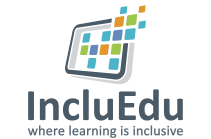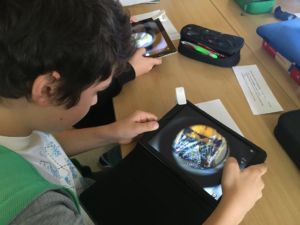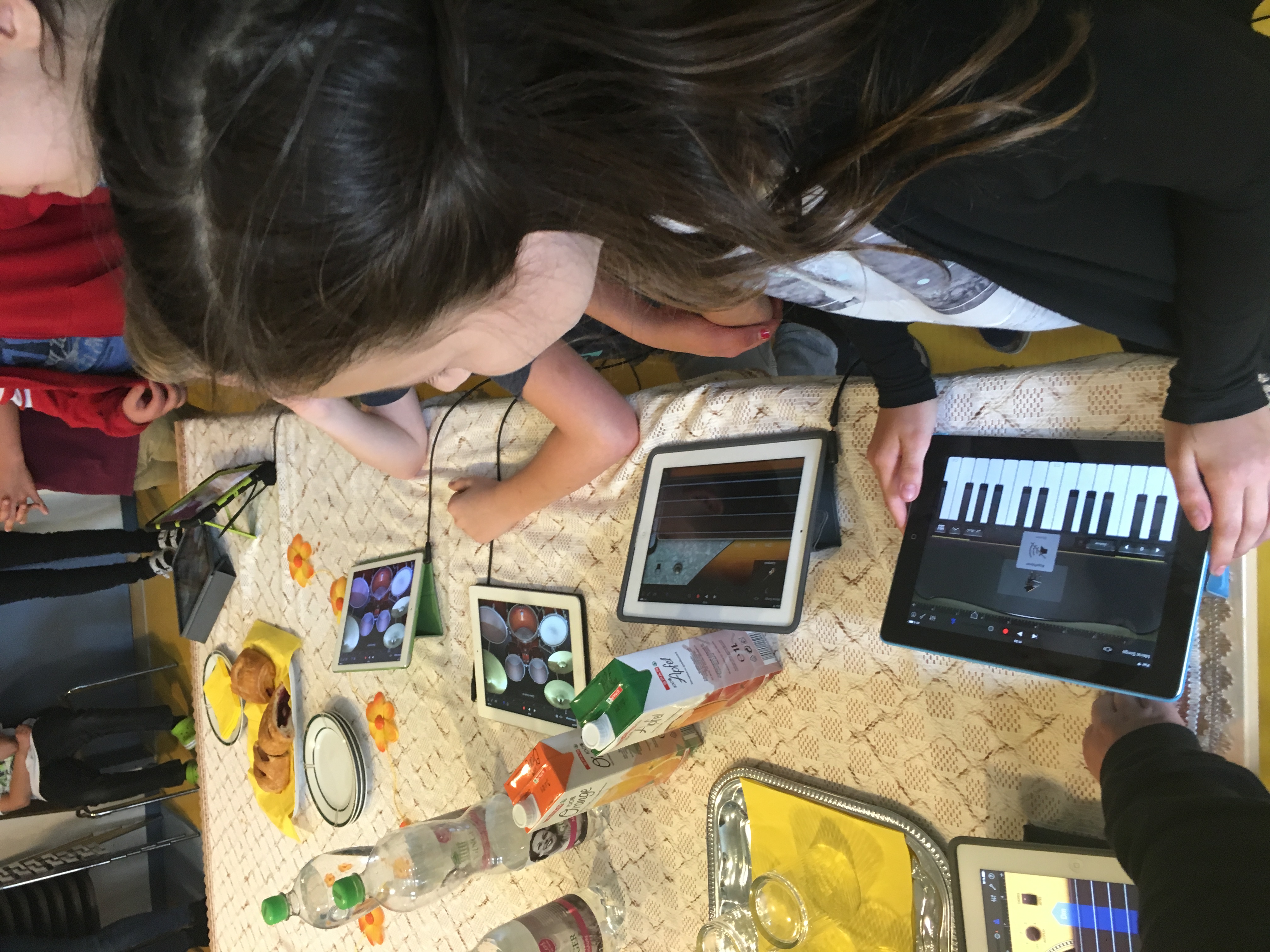WHAT DID YOU DO?
By financing 27 iPads for students and staff of the secondary school “Neue Mittelschule Jennersdorf” in autumn 2010 the Austrian ministry of education supported the founding of the first iPad school in Austria. Since then more than half of the 300 students learn with an iPad and the results are more than positive. “The increase of motivation is incredibly high”, says Hannes Thomas the headmaster of the school. The pupils are excited and proud to learn with the iPad. This fascination moves a lot and allows for an extremely easy access to knowledge. Keeping up with the digital world and using the chances of technical developments has already quite a tradition in Jennersdorf. Already 11 years ago students started to learn with early forms of Virtual learning environments. The goal was to allow a severely disabled student to take part in school from home. To make this happen a webcam was installed in the classroom and teaching an learning materials were submitted virtually.
By financing 27 iPads for students and staff of the secondary school “Neue Mittelschule Jennersdorf” in autumn 2010 the Austrian ministry of education supported the founding of the first iPad school in Austria. Since then more than half of the 300 students learn with an iPad and the results are more than positive. “The increase of motivation is incredibly high”, says Hannes Thomas the headmaster of the school. The pupils are excited and proud to learn with the iPad. This fascination moves a lot and allows for an extremely easy access to knowledge. Keeping up with the digital world and using the chances of technical developments has already quite a tradition in Jennersdorf. Already 11 years ago students started to learn with early forms of Virtual learning environments. The goal was to allow a severely disabled student to take part in school from home. To make this happen a webcam was installed in the classroom and teaching an learning materials were submitted virtually.
HOW DID YOU DO IT?
Let´s take a closer look at a pracitacl example of maths lesson: Every student has his own iPad in his schoolbag and brings it to the lesson. During the lesson the flat device naturally sits on the table aside of the school books, exercise books or the pencil case. “It´s the uncomplicated and natural grasp to the iPad, that is decisively responsible that the iPad replenishes the lesson in the best possible way, says the maths teacher. One big pedagogical advantage of the iPad is the fact that it is up and running within seconds. You can easily swap between school books, black board or the iPad. We can use a certain App if it fits for a certain purpose and then a couple of moments later just put the iPad aside. And if we need it again 20 minutes later, we wake it up again.” I like the fact that the iPad is so light. When you use a satchel, it get´s heavier and thicker throughout the year. The iPad always stays thin and it is much more clearly strucutured.” says 11-year-old Simon. Its fascinating to me, emphasized Mr. Thomas, how naturally students interact with the iPad. As if to say: I need that information now and I´ll retrieve it via the iPad. No matter what information it is, if it´s an English vocabulary or what movie is played in what cinema. Especially the 10-year-old ones usually can´t use a keyboard or have difficulties with their fine motor skills and have to learn how to use a computer mouse. The iPad can used with gestures like taping and swiping just using your finger. Right from the start the usage of the iPad never was an issue.
Let´s take a closer look at a pracitacl example of maths lesson: Every student has his own iPad in his schoolbag and brings it to the lesson. During the lesson the flat device naturally sits on the table aside of the school books, exercise books or the pencil case. “It´s the uncomplicated and natural grasp to the iPad, that is decisively responsible that the iPad replenishes the lesson in the best possible way, says the maths teacher. One big pedagogical advantage of the iPad is the fact that it is up and running within seconds. You can easily swap between school books, black board or the iPad. We can use a certain App if it fits for a certain purpose and then a couple of moments later just put the iPad aside. And if we need it again 20 minutes later, we wake it up again.” I like the fact that the iPad is so light. When you use a satchel, it get´s heavier and thicker throughout the year. The iPad always stays thin and it is much more clearly strucutured.” says 11-year-old Simon. Its fascinating to me, emphasized Mr. Thomas, how naturally students interact with the iPad. As if to say: I need that information now and I´ll retrieve it via the iPad. No matter what information it is, if it´s an English vocabulary or what movie is played in what cinema. Especially the 10-year-old ones usually can´t use a keyboard or have difficulties with their fine motor skills and have to learn how to use a computer mouse. The iPad can used with gestures like taping and swiping just using your finger. Right from the start the usage of the iPad never was an issue.
WHY WERE TABLETS USED/WAS IT BENEFICIAL?
Keeping up with the digital world and using the chances of technical developments has already quite a tradition in Jennersdorf. Already 11 years ago students started to learn with early forms of Virtual learning environments. The goal was to allow a severely disabled student to take part in school from home. To make this happen a webcam was installed in the classroom and teaching an learning materials were submitted virtually. I think that it´s our educational duty nowadays to teach our students how to use modern technologies in school. I think that in reality every student uses new technologies several hours each day. That´s why we need to focus much more on these new media and of course also on the dangers. If an App suits for educational purposes is finally decided within the classroom. We should not underestimate the students opinion, says the English teacher Mr. Schwarzl. “Not everything that appeals to the teacher, is also right for the student. Students give us feedback, if the like to use a certain App or not. This is a very important feedback, that we teachers really need.” For his English classes Mr. Schwarzl has preselected around 20 Apps for vocabulary training to finally test them with his students. “Around two to three Apps remained, that were of real value for the students.” “Learning English with the iPad is great. You just enter any word and a voice reads out loud, what it means and how it should be pronounced.” Niki, 11 Years. The iPad already replaced around five schoolbooks in the first grade of Jennersdorf. Instead of the printed version, they use a Childbible-App from the publisher Herder in religion classes, instead of an atlas of the world they use Wikipanion or Google Maps in geography classes. In German classes they use the Apps dictionary, iBooks and Notes, in English the App card2brain. In music classes, the music teacher assures, the old music book have had its day. “The big advantage of writing muical notes with an App – whether if it´s Magic Piano or Virtuoso Piano pro Classic – is, that you can instantly hear what you have written. No ordinary music book can do that.” Cooperative learning with the iPad is one of the big advantages of this new way of learning emphasises the class teacher. “That´s why we consciously select Apps, that allow students to interact with each other. “ In a small developers group and in cooperation with the company CaseApps the school even developed their own App called “Papierflieger” (this means paperplane in German). The app is perfectly geared to the communication needs in the classroom, says headmaster Mr. Thomas. “We thought it would be great if we could distribute contents, that the students usually head to take down from the blackboard, virtually. With Papierflieger everybody can send contents via WiFi – the teacher to the students, the student to the teacher or the students between each other.” This App was even developed, when classroom communication solutions like Showbie or Google Classroom just started to evolve. A typical example for the use of Papierflieger: Assessment of learned knowledge during the lesson. At the end of the lesson the teacher asks three questions and distributes them to all students using Papierflieger. The students instantly return the answers to the teacher. “This instantly give you a good overview, if the students understood the main contents of that lesson or if it´s necessary to repeat something”, explains Mr. Thomas. “We get lightning feedback”.” „But it´s my big vision, says Mr. Thomas, “that the Austrian schoolbook publishers provide Apps for the iPad, that can really replace old schoolbooks. I´m talking about a really big eBook, that reflects the curriculum. A book, that lives. A book, that can target many different learning types – the visual ones as well as the auditory.”
Keeping up with the digital world and using the chances of technical developments has already quite a tradition in Jennersdorf. Already 11 years ago students started to learn with early forms of Virtual learning environments. The goal was to allow a severely disabled student to take part in school from home. To make this happen a webcam was installed in the classroom and teaching an learning materials were submitted virtually. I think that it´s our educational duty nowadays to teach our students how to use modern technologies in school. I think that in reality every student uses new technologies several hours each day. That´s why we need to focus much more on these new media and of course also on the dangers. If an App suits for educational purposes is finally decided within the classroom. We should not underestimate the students opinion, says the English teacher Mr. Schwarzl. “Not everything that appeals to the teacher, is also right for the student. Students give us feedback, if the like to use a certain App or not. This is a very important feedback, that we teachers really need.” For his English classes Mr. Schwarzl has preselected around 20 Apps for vocabulary training to finally test them with his students. “Around two to three Apps remained, that were of real value for the students.” “Learning English with the iPad is great. You just enter any word and a voice reads out loud, what it means and how it should be pronounced.” Niki, 11 Years. The iPad already replaced around five schoolbooks in the first grade of Jennersdorf. Instead of the printed version, they use a Childbible-App from the publisher Herder in religion classes, instead of an atlas of the world they use Wikipanion or Google Maps in geography classes. In German classes they use the Apps dictionary, iBooks and Notes, in English the App card2brain. In music classes, the music teacher assures, the old music book have had its day. “The big advantage of writing muical notes with an App – whether if it´s Magic Piano or Virtuoso Piano pro Classic – is, that you can instantly hear what you have written. No ordinary music book can do that.” Cooperative learning with the iPad is one of the big advantages of this new way of learning emphasises the class teacher. “That´s why we consciously select Apps, that allow students to interact with each other. “ In a small developers group and in cooperation with the company CaseApps the school even developed their own App called “Papierflieger” (this means paperplane in German). The app is perfectly geared to the communication needs in the classroom, says headmaster Mr. Thomas. “We thought it would be great if we could distribute contents, that the students usually head to take down from the blackboard, virtually. With Papierflieger everybody can send contents via WiFi – the teacher to the students, the student to the teacher or the students between each other.” This App was even developed, when classroom communication solutions like Showbie or Google Classroom just started to evolve. A typical example for the use of Papierflieger: Assessment of learned knowledge during the lesson. At the end of the lesson the teacher asks three questions and distributes them to all students using Papierflieger. The students instantly return the answers to the teacher. “This instantly give you a good overview, if the students understood the main contents of that lesson or if it´s necessary to repeat something”, explains Mr. Thomas. “We get lightning feedback”.” „But it´s my big vision, says Mr. Thomas, “that the Austrian schoolbook publishers provide Apps for the iPad, that can really replace old schoolbooks. I´m talking about a really big eBook, that reflects the curriculum. A book, that lives. A book, that can target many different learning types – the visual ones as well as the auditory.”





